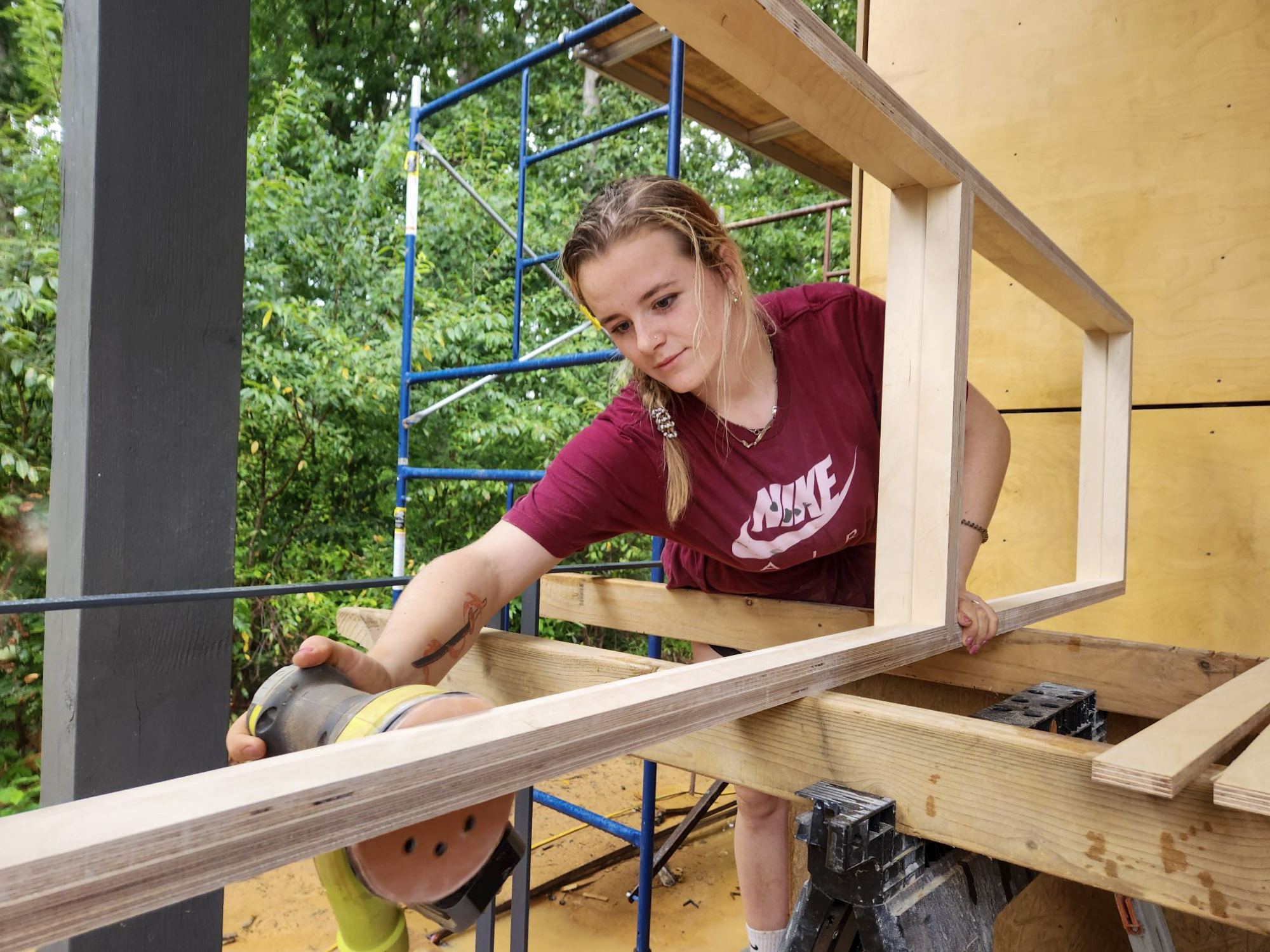The home designed and built by students, one of six constructed in the EcoVillage at Loy Farm’s first phase, involved more than 60 students over the course of an academic year and yielded lessons students will carry into their futures.
“I didn’t know I could do all of this.”
Before teaming with fellow students last fall to build one of the first six homes in Elon’s new EcoVillage at Loy Farm, Abi O’Toole ’26 had never held a drill or used a power saw. She’d never built window frames, stained and finished countertops, or considered fitting a custom shower and bathroom.
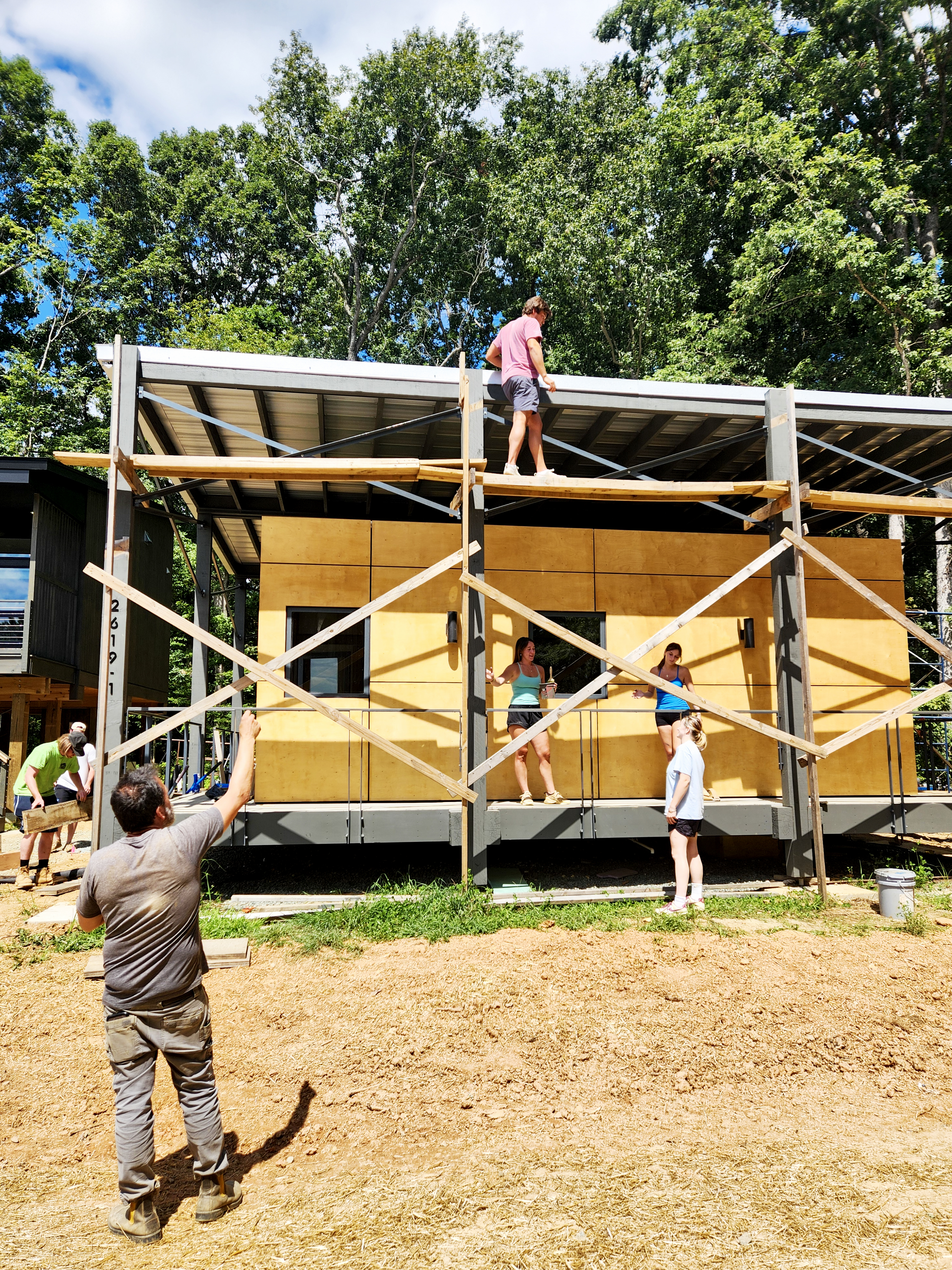
Now, O’Toole has done all of that and more as one of over 60 Elon students involved in the home’s design and construction.
“It was an opportunity I couldn’t pass up, and something I’d never experienced before: building a house, and one that students will live in for decades, while caring for the environment,” said O’Toole, an environmental and sustainability studies major from Raleigh, North Carolina. “It’s given me so much confidence to see that I’m capable of this.”
The experience revealed career paths in sustainable architecture and construction waste management, and O’Toole is eager to put her hard-earned skills to use in helping humans live more harmoniously with the planet.
That’s the ultimate goal of the EcoVillage, a dynamic living-learning community at Loy Farm that welcomed its first residents this week. Along with the single student-built home, independent contractors designed and built five others in the project’s first phase. Each home is around 600 square feet, with two bedrooms and shared common areas for two students. While they all are energy efficient, individual homes approach sustainability in different ways — from using solar energy for electricity or hot water, to capturing stormwater through cisterns for irrigation and a vegetative green roof.
In partnership with donors, an additional six sustainably designed homes will be built over the next 12 months, creating an opportunity for 24 students to apply their classroom learning to tending the farm while learning sustainable principles they will carry into the world. The innovative project inspired Elon parents John and Kristin Replogle P’18 of Raleigh to give a $100,000 naming gift toward one of the houses this spring.
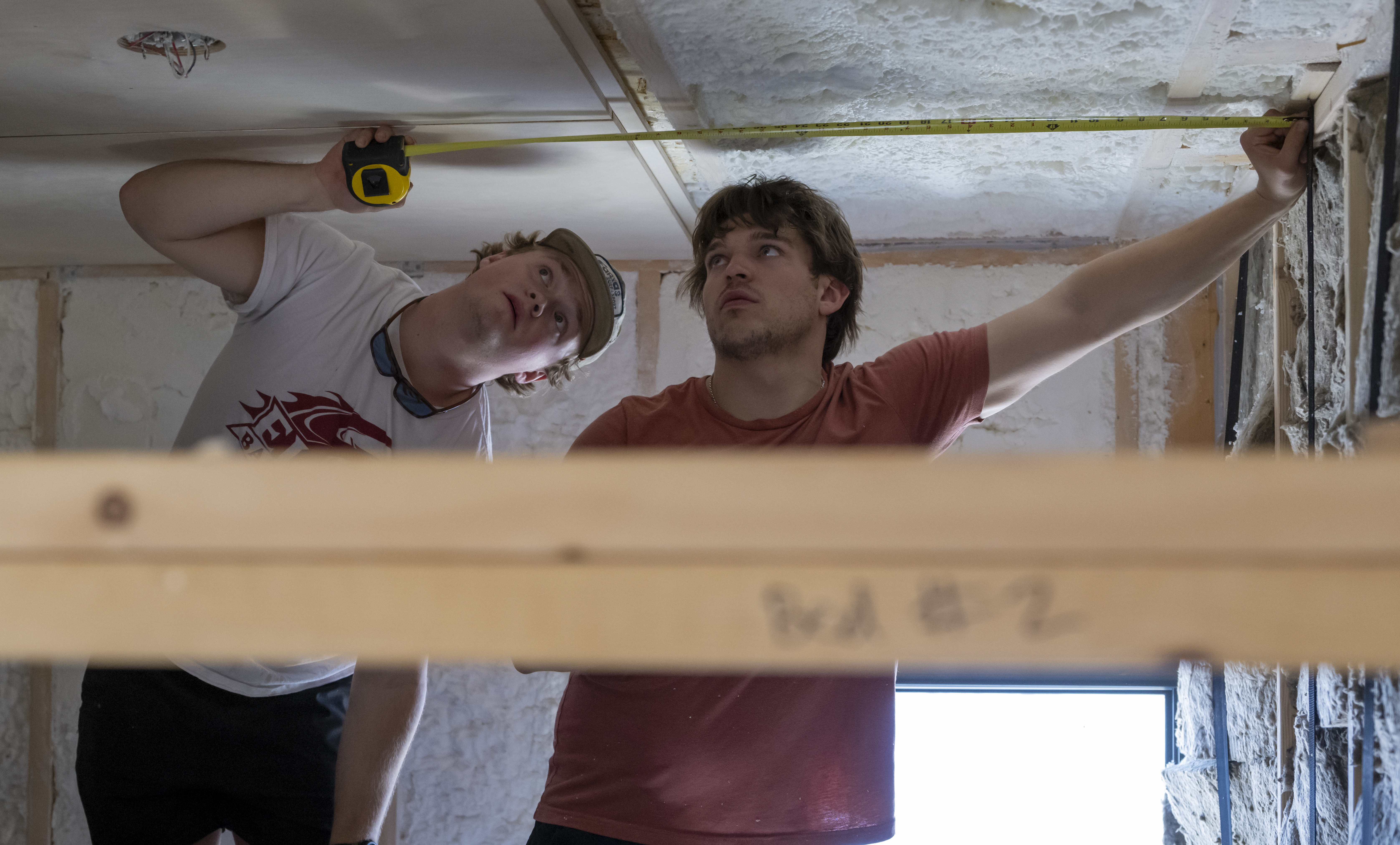
The LLC will be a model for sustainable architecture and hands-on, engaged learning opportunities that are unavailable at many colleges and universities. Elon President Connie Ledoux Book emphasized those opportunities in a message to the community this week, calling it a “living laboratory” for students to explore responsible use of resources and “carry these practices into the world as informed global citizens.”
“The EcoVillage represents an important step forward for Elon and our community, who will visit this hub for education about sustainable practices in architecture and the positive impact each of us can have on the environment when we choose how we live,” Book said this week. “One of my favorite parts of this project is listening to the students and designers describe the powerful learning experiences they are having as they have designed and built the EcoVillage.”
The student-designed and -built home is a prime example of engaged learning at Elon, with students tackling real-world problems under the mentorship of faculty and staff. Associate Professor of Environmental Studies Robert Charest, an architect committed to the principles of sustainable design, led the project over two years in his design courses and managing students participating in the construction since July 2023.
“This was a once-in-a-lifetime opportunity to build a real house in college,” said Kade Iervolino ’24, who remained at Elon after graduation to complete the project and was a peer mentor to others on the build. “We wanted this house to be beautiful and well-made. We accomplished that, and now I have a stronger sense of how to manage projects and work in a team while maximizing efficiency and making quality work.”
All in the Details
It’s easy to admire the student-built home’s design, craftsmanship and details. Some of its features include:
- 500 square feet of interior living space, and an additional 500 square feet of exterior spaces including a wrap-around porch;
- Birchwood paneling and built-in furniture with walnut accents and regionally sourced cypress decking add a natural aesthetic;
- Timber frame constructed from fir beams and raised on piers instead of a traditional foundation to minimize site impact;
- A standing seam canopy shades the home to block excess heat, and cross-ventilation reduces the need for air conditioning;
- Large, north-facing windows provide natural light while conserving energy; and
- A modern, full kitchen and versatile communal living space.
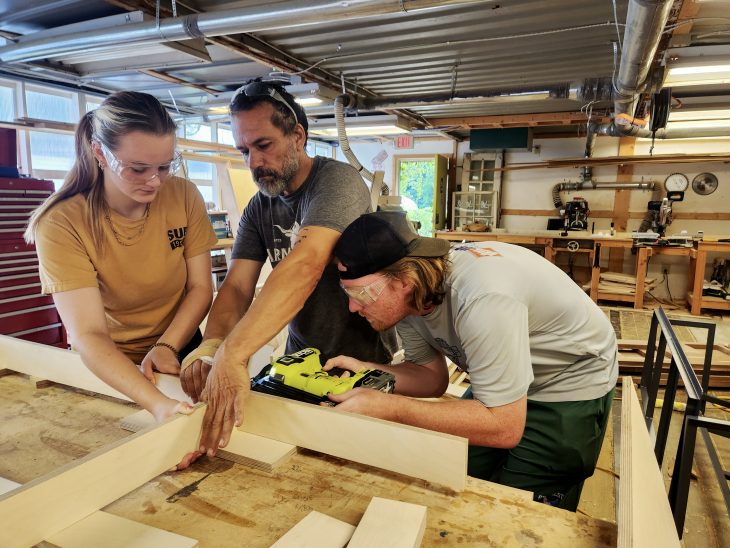
There’s more to admire beyond the specs. Elon students and Charest carefully considered every aspect of the home. When the project began in summer 2023, Charest described it as a laboratory with students building the lab. Throughout, he empowered them to ideate and collaborate on the finished design, and his teaching philosophy encourages a less formal teacher-student relationship where students call him by his first name.
“At most construction sites, you come in with a prepared design and execute it. This project didn’t happen that way,” Charest said. “We had a blueprint and models, but about 60% of this finished home was designed and created by students on-site.”
That process allowed students to test their ideas, experiment with concepts and innovate.
This was a once-in-a-lifetime opportunity to build a real house in college. We wanted it to be beautiful and well-made. We accomplished that, and now I have a stronger sense of how to manage projects and work in a team while maximizing efficiency and making quality work.
One of their ideas led to a key feature: floor tiles made from fir-beam remnants. They cut, sanded and finished more than 2,000 wooden tiles and hand-fit them together into a unique design that resembles parquet flooring and highlights the natural woodgrain.
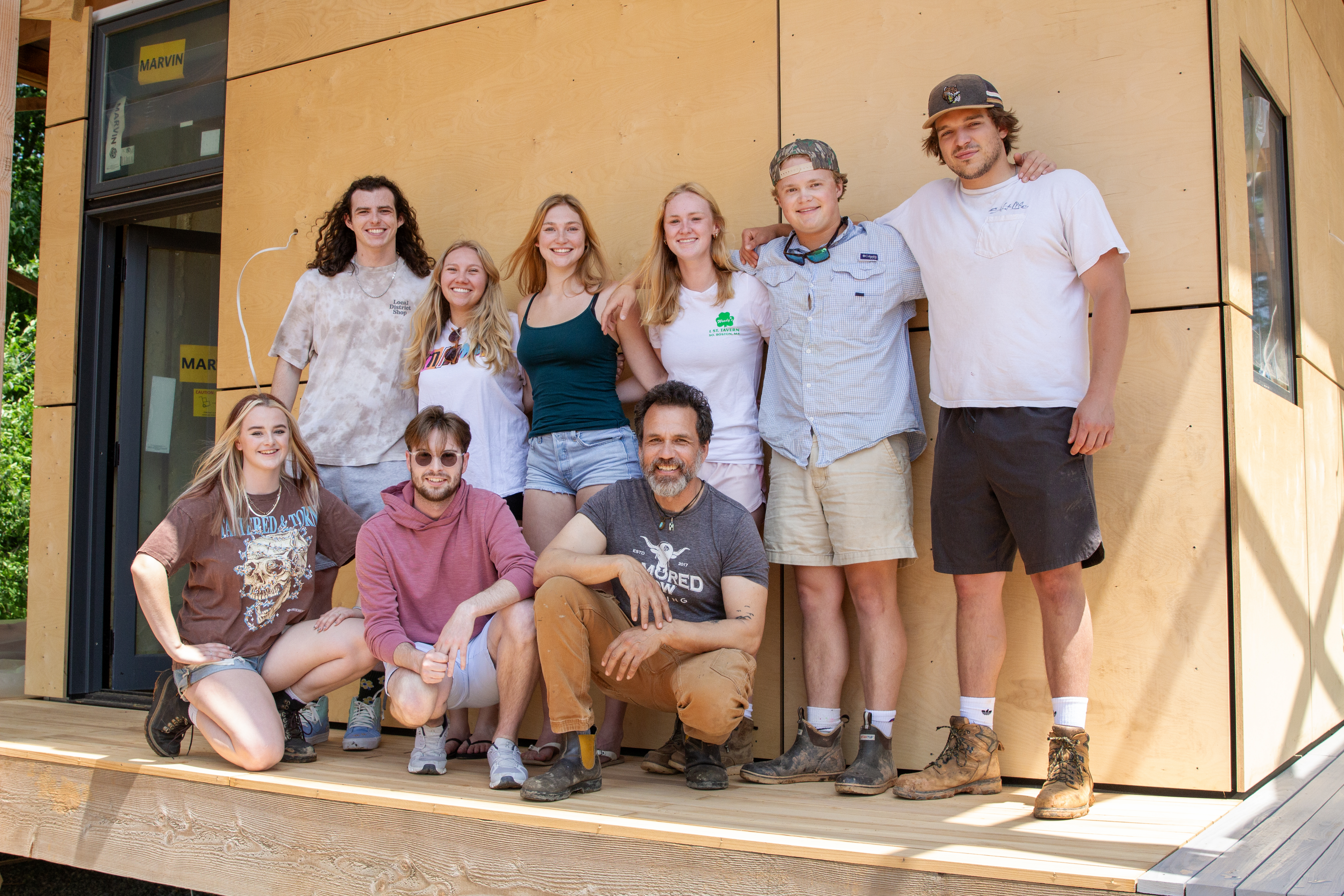
“Robert let us take on a lot of responsibility for this project. When he wasn’t on site, we used what we learned from him to problem-solve on the spot. Being able to accomplish this work on our own gave us confidence in ourselves and helped us learn,” Iervolino said.
Among the aspects Charest and students are proudest of: They never used or needed a Dumpster. Construction typically creates an abundance of waste. Students repurposed, upcycled and donated leftover materials to organizations like Habitat for Humanity.
Another point of pride: On Friday, Aug. 23, theirs was the first in the EcoVillage to receive a certificate of occupancy from inspectors. A core team of about 10 students this summer worked in shifts to put in six- and seven-day work weeks to have it move-in ready for this school year.
Learning as a Team
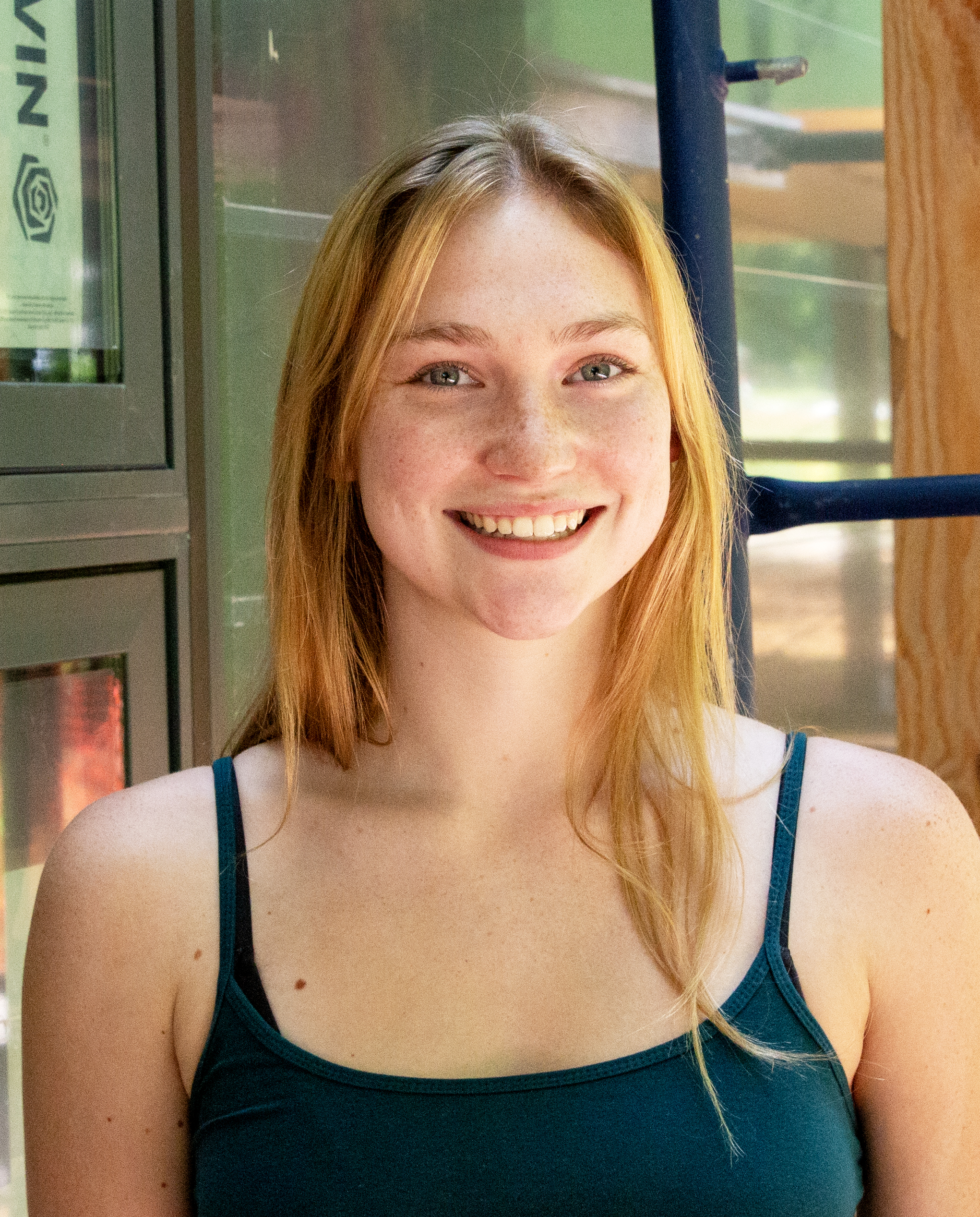
“Every day, I was learning something new and making decisions with high stakes. I had to learn quickly how to adapt to new situations and problem solving, and I think that was a team effort. We all supported each other in learning new things.”
– Genevieve Nichols ’25, environmental studies major from Williamsburg, Va.

“We were able to take chances, make mistakes and learn from them. Before, I might have beaten myself up. Now, I can accept them and continue working. That was huge for me.”
– Colin Breuer ’24, environmental and sustainability studies, Naples, Florida
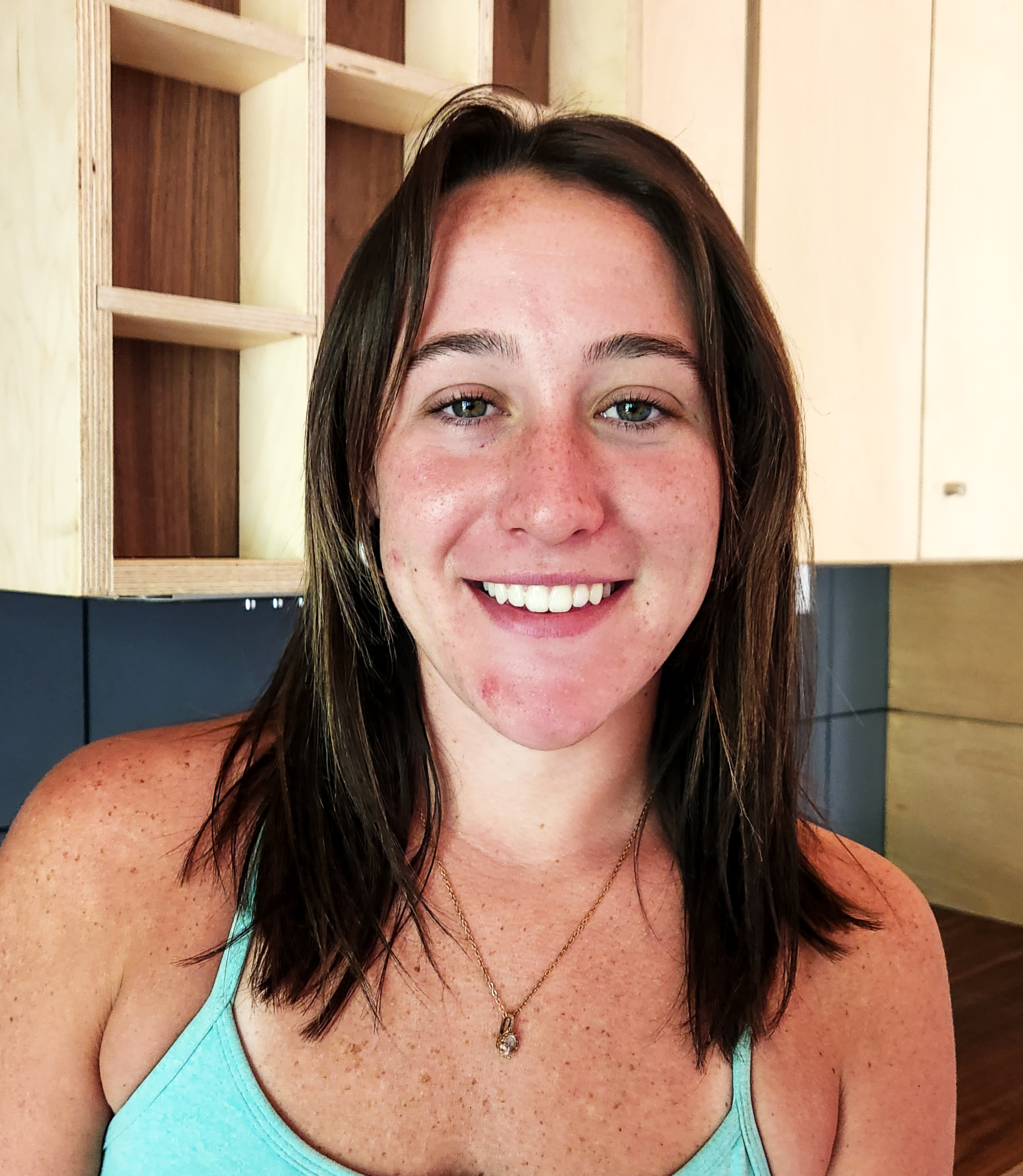
“Coming into this as a project manager, I wasn’t expecting to love it as much as I did. I’ve become a lot more confident handling tools and trusting myself with measurements. You think, ‘I can’t fit the whole shower. I can’t tile an entire floor.’ Then you do it. You realize how capable you are.”
– Macey Rodrigues-Cowl ’25, a project management and marketing double major from Merrimac, Massachusetts
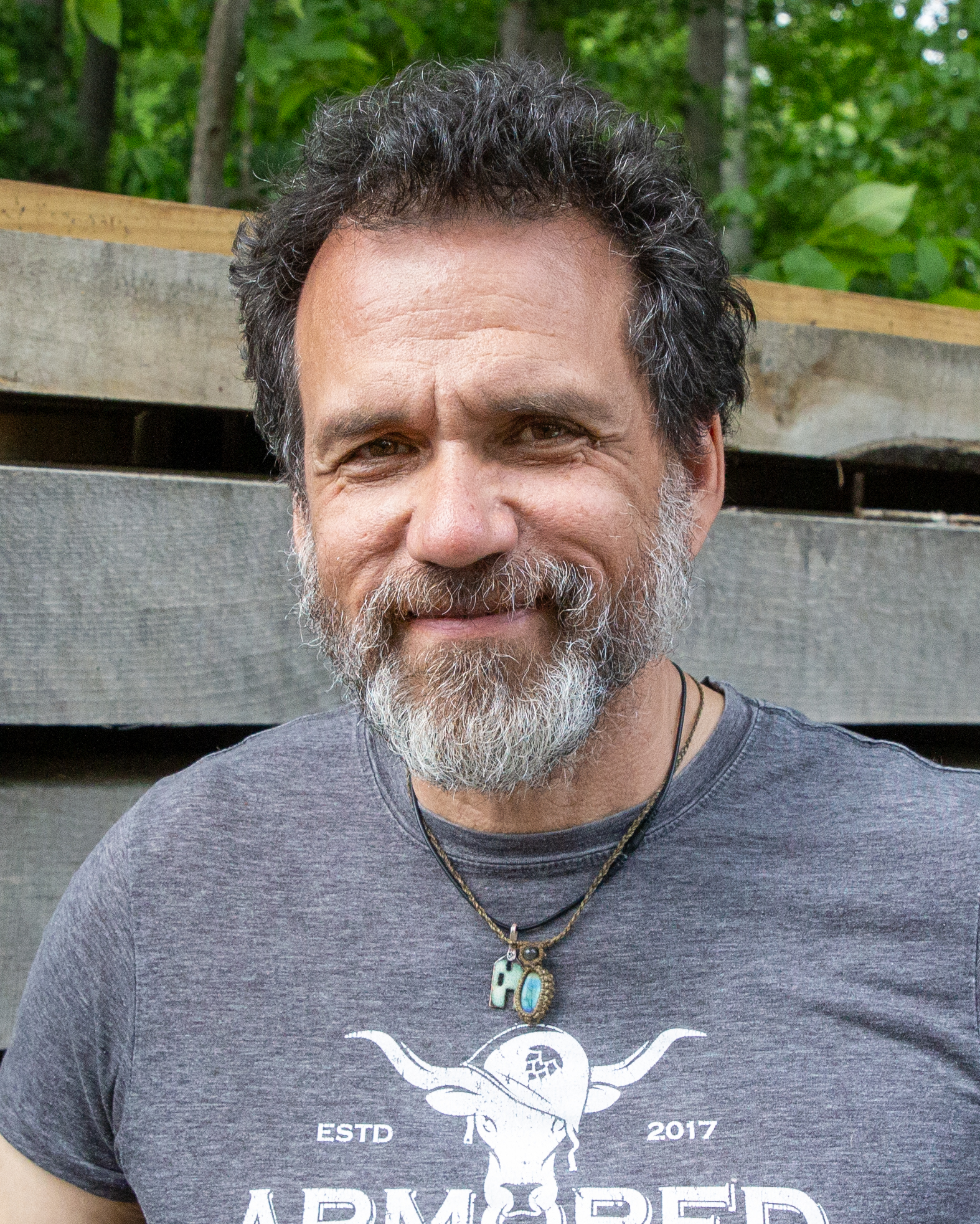
“There’s a passion that comes from being a part of something like this. What has been eye-opening for me is how unexpectedly fluid this process has been to result in this level of quality of construction and design. We’ve had a core group of students working on-site, and also students joining from different classes and a whole range of majors. The continuous refining of the design and decision-making on site happened organically and led to beautiful consensus.”
– Robert Charest, associate professor of environmental studies
About Loy Farm
The EcoVillage project represents a major step forward in the evolution of Loy Farm, which the university acquired in 2000 from the late Bill Loy Jr., whose generous gifts to the university include Loy Center and the land upon which The Inn at Elon was built.
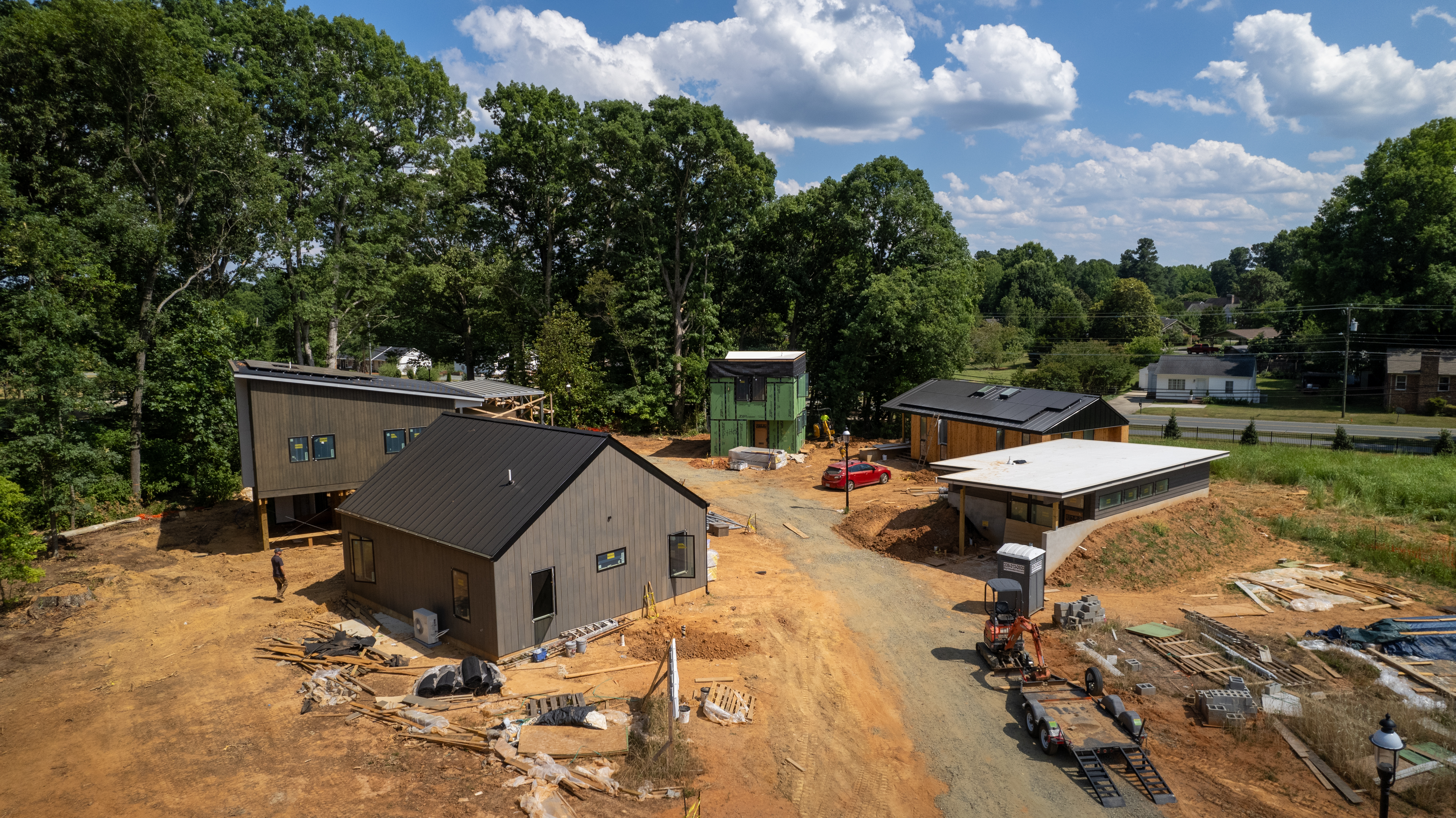
The farm has become a living-learning laboratory in keeping with Elon’s longstanding commitment to sustainability. It houses the Environmental Center at Loy Farm, where students and faculty research agricultural practices, and an active farm overseen by fulltime staff that produces harvests for Harvest Table Culinary Group (Campus Dining), Elon’s Campus Kitchen, Allied Churches of Alamance County’s Food kitchen and the Burlington Housing Authority.
Enhancing sustainability efforts is an important component of the Boldly Elon strategic plan, which will guide the university through 2030. Boldly Elon calls on the campus community to engage in sustainable practices to become carbon neutral by 2037, investing in renewable energy, reducing energy consumption and preparing students to lead lives that build a sustainable future.
Many philanthropic opportunities are available to support the EcoVillage. To learn how you can make an impact, contact John Gardner ’01, senior director of development, at (336) 278-7432 or jgardner9@elon.edu.



